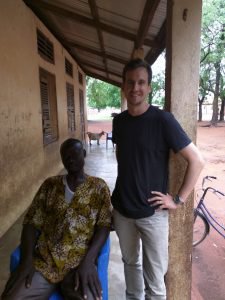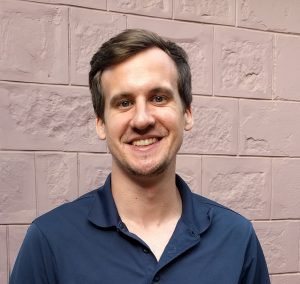
GLOBAL • AGRICULTURE & TECHNOLOGY
Brandon Curriston
JULY 19, 2017
WorldCover is a socially conscious alternative to traditional investment avenues. Started in 2015 by Chris Sheehan and Shiliang Tang, they have focused on using finance as a “tool for good in the world,” to prove “that businesses with inherently positive social impact can also grow rapidly and create wealth for investors.”
WorldCover is a socially conscious alternative to traditional investment avenues. Started in 2015 by Chris Sheehan and Shiliang Tang, they have focused on using finance as a “tool for good in the world,” to prove “that businesses with inherently positive social impact can also grow rapidly and create wealth for investors.”
To explain briefly, WorldCover protects farmers from natural disasters, while giving investors diversified returns and direct social impact. In 2016 it was funded by Y Combinator (and named by Techcrunch as one of the top seven companies in the batch) and other venture capital firms such as ACE & Company. Chris recently spoke during the “Entrepreneurs at Work” session of their Global Investment Forum in Geneva, Switzerland.
WorldCover is also incorporated as a Public Benefit Corporation, just as is Etsy, Kickstarter, andpotentially soon, Unilever. They are a for profit company with social mission built into their DNA.

In a little more detail, they offer investments tied with natural risks, like weather. You can then choose among sets of customers around the world looking for insurance from different risks. From here, you earn a portion of the premiums the customers pay, and your funds are used for a payout if the risk occurs (say a drought in Ghana).
They claim the major upsides for investors are “highly diversified risk.” Additionally, this investment will allow diversification to an extent that is completely unrelated to the traditional financial models such as the S&P 500. To date they have been largely successful and are continuing their upward trajectory with both long term and short term goals.
Seedstars spoke with co-founder and CEO Chris Sheehan, as he shared his thoughts on being a finance nerd, doing good in the world, and the current state of WorldCover. After an honest and enlightening conversation, we had a much deeper understanding his company. Who they are? What they stand for? How and why they do what they do?
A business accurately reflects its leader. The leader is always responsible; their energy and values trickle down to the rest of the organization. Hence, why your company culture needs to be a reflection of you? With WorldCover, this is apparent from the beginning.
As a self proclaimed “finance nerd” Chris was “always interested in financial products and using math to manage risk or to manage money.” After going to MIT to study computer science and finance he moved in to working as a quantitative global equity trader and managing global portfolios using algorithms and computers. It eventually lead to a company called System Two Advisors where he was one of the founding members.
“An interesting anecdote is when I was 11 years old I actually started an insurance company selling my family insurance to protect them against losing their sunglasses or basketball or car keys. So, I always recognised that insurance was a good business and I was always a bit of a financial nerd.” — Chris Sheehan, CEO WorldCover
During his time with System Two Advisors he says: “I really discovered the startup bug. I enjoyed building the product and marketing from the very beginning, thinking about developing team members, and also experiencing what a remote team feels like. All of this experience started growing a desire for me to build a product, or work with products that had a lot more visceral meaning or visceral impact on actual humans and their daily lives rather than basically building wealth for already wealthy individuals or institutions.”
A natural progression followed and Chris began hearing about impact investing products with different forms of micro-credit and micro-finance. Initially stumbling across the Grameen Foundation, which had been in operation for years creating really simple but effective credit products for people around the world that don’t have access to traditional finance. “Honestly, it was like a perfect fit from the beginning for me, because it still has that kind of financial nerdy-ness to it, but also has real impact on people,” says Chris. Next thing you know, WorldCover was born.

When looking at micro-credit and lending for these small businesses and individuals in developing countries and elsewhere, it actually turns out that it is quite readily accessible. When it comes down to it, it is really about risk that is holding people back. Typically, individuals can find money from neighbours, friends, or MFIs (micro finance institutions) that are in the market. But, what they don’t want to do is, they are afraid to put the money to work, because any number of disasters beyond their control can come and wipe out their investment and leave them indebted potentially for the rest of their lives. At the very least, it can certainly destroy their business or set them back for set them back for many years.
“There’s something like a hundred billion dollars in losses every year to natural catastrophes in developing countries, and less than one percent of that is actually insured today. It’s a huge amount of loss and it’s holding back the small businesses.” — Chris Sheehan, CEO WorldCover
Micro-insurance, the niche that WorldCover finds themselves in, has been very slow to adopt worldwide, despite the widespread need. There are some examples in life, health, and accident insurance such as BIMA: a Swedish company that has been getting hundreds of thousands of customers per month across Africa. However, when it comes to natural disasters, it’s just not provided. This is the area where WorldCover comes in and fully fulfills a great need.
The product of WorldCover is certainly customer centric at its core. When initially launching, Chris went to Ghana and began speaking to the farmers there. To him, it was important they didn’t “sit around and design a product by committee,” but instead that they actually went and understood what the customer problems were.
“I would ask a farmer, what’s your biggest problem today? What are you worried about today? Just a very general question, and they would say I’m worried that the rain won’t come. I’m worried that my crop will fail and there will be drought this year.” — Chris Sheehan, CEO WorldCover
From here, “I knew that we could create a product that was investable, that was self-sustaining, and a way that was able to move capital from San Francisco or New York, to Northern Ghana,” he says. Also, “it is important it is at the right time, when there’s catastrophes.”
The micro-insurance model is mutually beneficial in nature. Not only is it providing a needed service of insurance for individuals on one side, but also it is providing investment opportunities that allow for true diversification and substantial social benefit for those on the other side. This combination is a win-win.
When looking at investment opportunities, Chris explained “there is a lack of good investments to put your own money in, which are aligned with social values, and contribute to society a little bit more directly than through investing in capitalist systems.” Typically, to meet these needs people have to give to charity. But, charity isn’t a good way to save for the future because then your money is gone. So, the question became: “how can you earn a return, and also have impact?” For Chris, the answer to this question came together with WorldCover.
WorldCover is contemplated to be a “marketplace where retail investors and institutional investors can save their money, earn a market return or better, and also have direct social impact.” What better way to have direct social impact than to protect someone in another country where there’s no social safety net from a natural disaster? That’s the mission of WorldCover. To help small businesses around the world deal with risk from climate change and other natural disasters.
Currently, the priority is to establish themselves in Ghana and try to introduce a product that is extremely well taken by farmers there. The new administration in Ghana is very much into the initiative of creating jobs, which is very much about grassroots strengthening of the agricultural sector there. See recent press about the government’s Planting for Food and Jobs initiative. After that, the next strategic move is to start looking at new markets and translating what they learned into new places. Ultimately, it is to increase the size, level, and quality of investments that they offer their partners and investors. The vision is absolutely to be global and to assemble a “portfolio” of countries or places that make this investment an attractive option.
“Our thesis is that despite there being different contrast in location, despite there being cultural differences, language differences, different political systems, different seasons; that at the end of the day there are hundreds of millions of people farming nearly the same crops, like maize, under nearly the same conditions, which is rain-fed agriculture, and therefore subject to the same problems. That’s why I think drought and agriculture are our focus for the time being, even though we have a larger vision of helping with all sorts of disasters.” — Chris Sheehan, CEO WorldCover
WorldCover is currently accepting funding and investors, while no longer looking for seed capital. The product is still being developed and really highlights a growing trend of interest in Africa. The amount of talent, specifically entrepreneurial talent, in Africa is quite frankly remarkable. While WorldCover has an office out of New York their operations are heavily based in Ghana and the rest of Africa. It’s definitely a sector that people should continue to look at.
*This article is an original piece written for SeedStars.com. You can contact the author, Brandon, directly at [email protected] or on twitter @BCurriston.
“Disclaimer: Seedstars encourages freedom of speech and the expression of diverse views. The views of columnists published on Seedstars are therefore their own and do not necessarily represent the views of Seedstars.”
